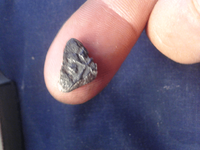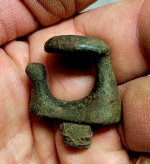runningafever
Jr. Member
- Oct 26, 2013
- 30
- 5
- Detector(s) used
- Minelab Excalibur 2
- Primary Interest:
- All Treasure Hunting
I am aware that dredging is not allowed in Fl unless you have a permit, and that is next to impossible to obtain. My question is regarding the 1715 lease areas. Are the Brisbanes allowed to use dredges within their lease area? If yes, do the Brisbanes ever allow their contractors to use a dredge system under their lease?
Thanks for any insight you can share.
Thanks for any insight you can share.





